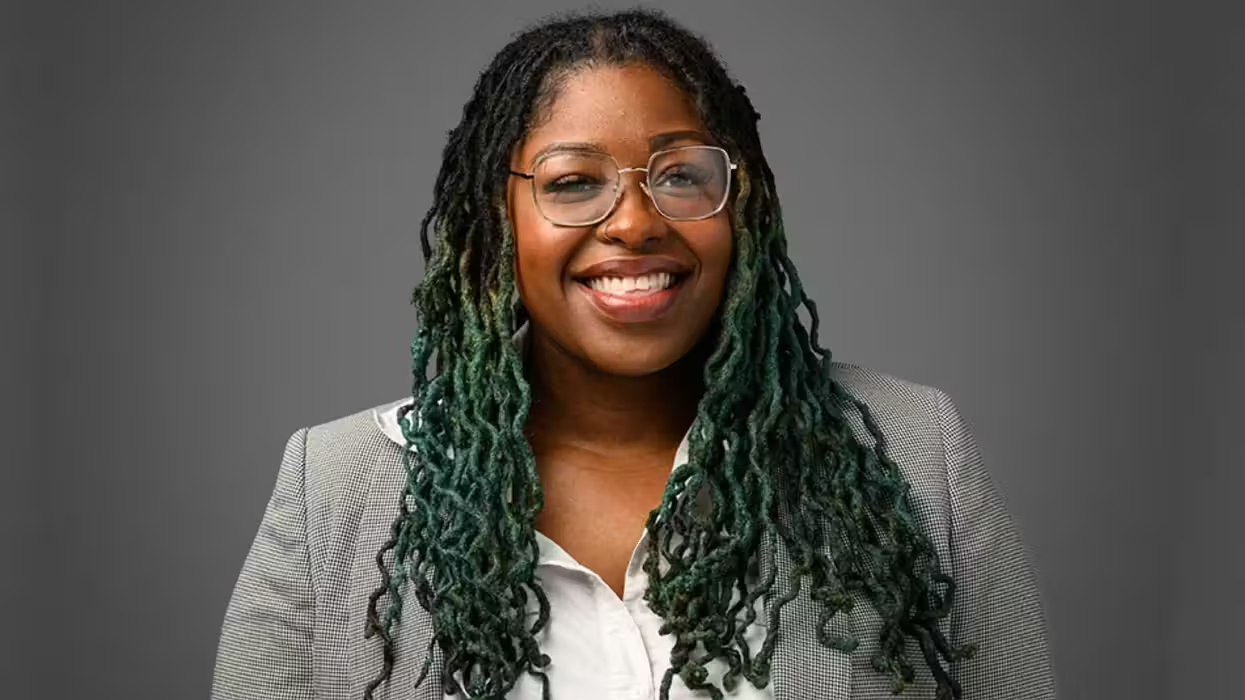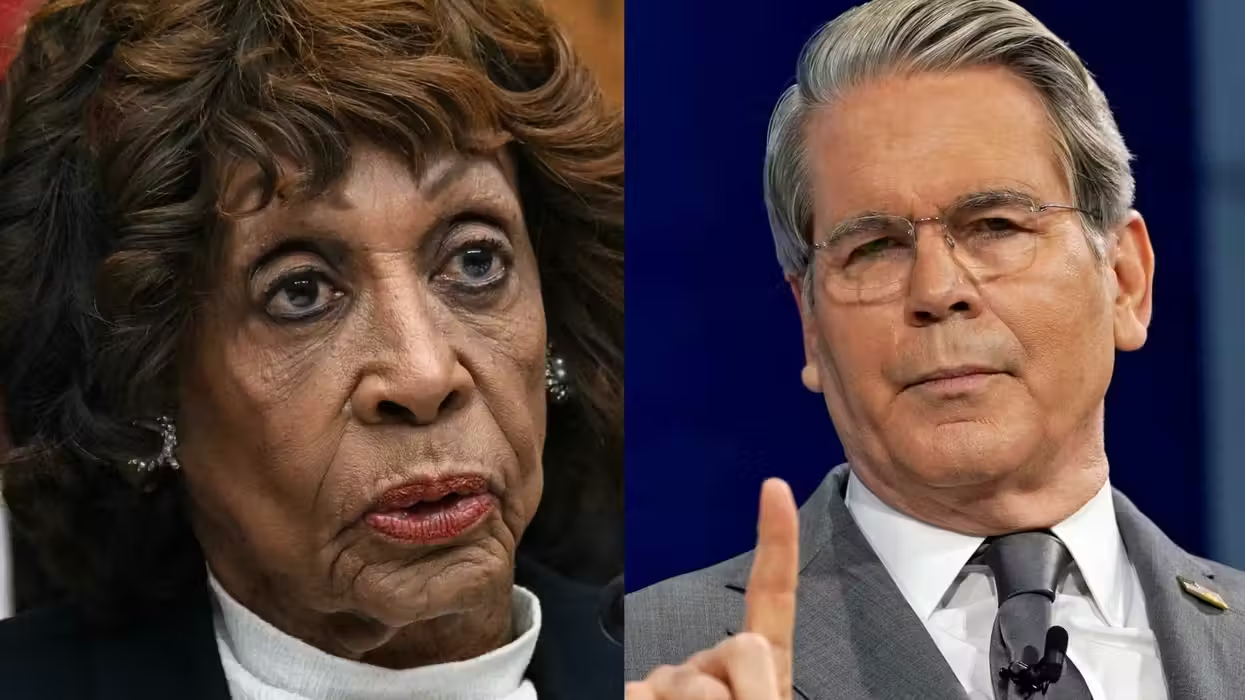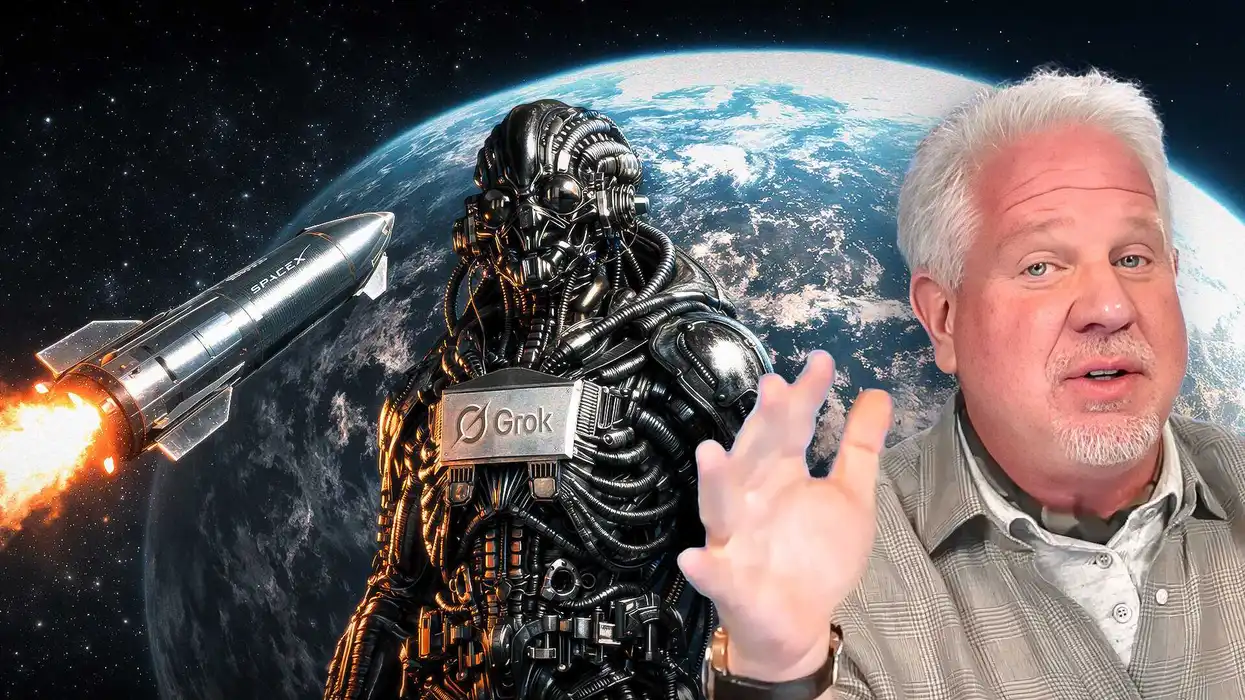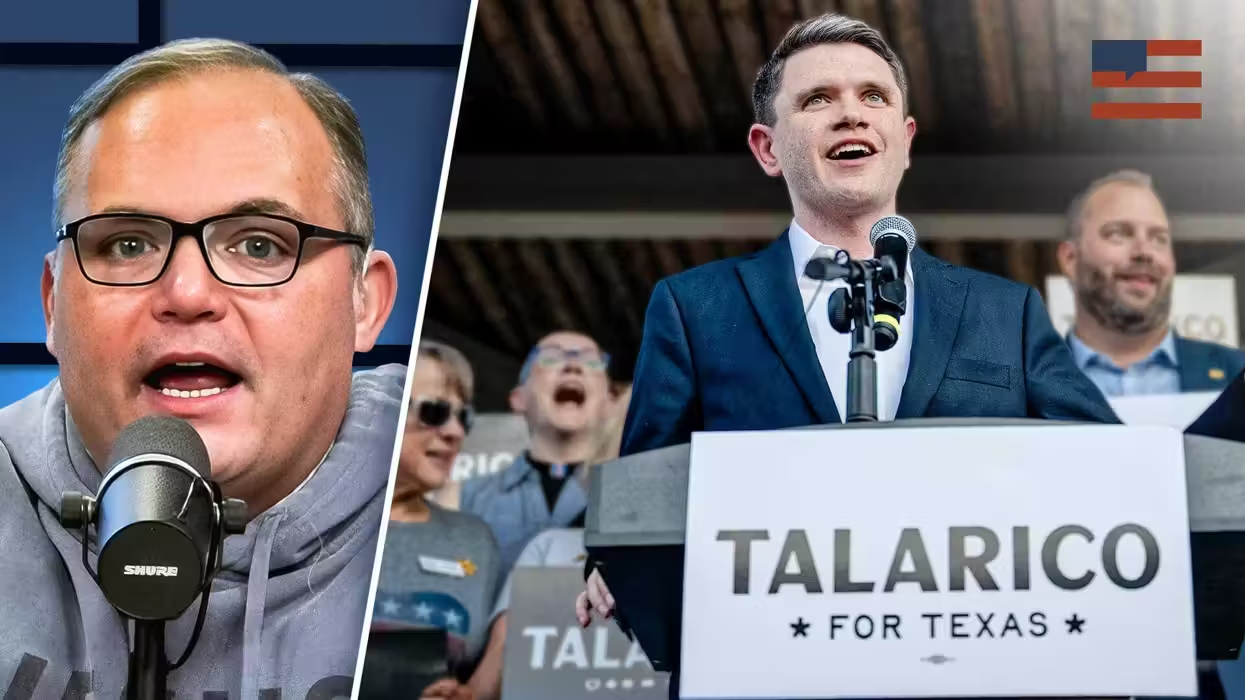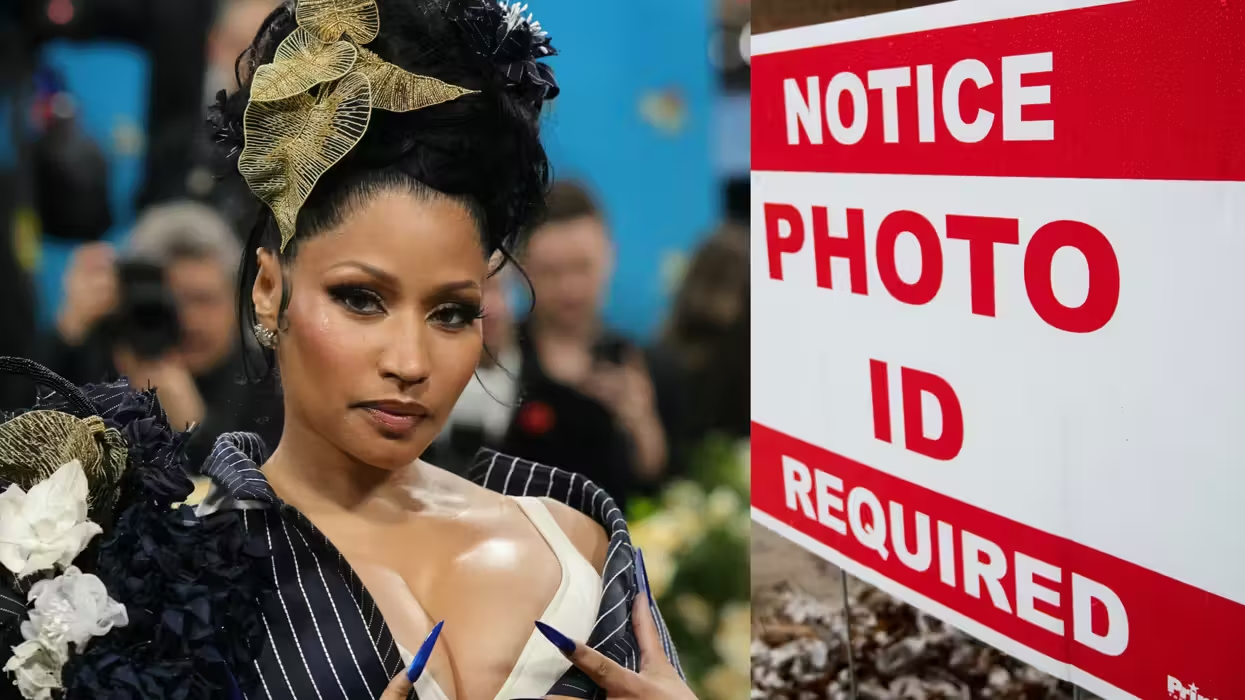
© 2026 Blaze Media LLC. All rights reserved.
Do we want to take "a well regulated militia" seriously?
This article is part of a series on Guns in America that explores the use of firearms in our country and the debate over gun control. This is an editorially independent series sponsored by Tactical Firearms Training Secrets.
At the center of today's contentious debate on gun control is the U.S. Second Amendment and its role, interpretation and place in modern-day society. Indeed, times have changed since 1791 when it was deemed that a "well regulated militia, being necessary to the security of a free state, the right of the people to keep and bear arms, shall not be infringed.”
But what does this statement mean, exactly, and how does it inform our present-day circumstances, especially in the wake of the Newtown, Connecticut shooting?
Does the term "well regulated" imply that gun reforms and regulations are perfectly within the purview of the constitution? Or does the term "well regulated" have a militaristic, rather than legal interpretation? In other words, does it simply mean a "well-organized" militia.
When polled, most gun owners hold moderate views on gun ownership and look favorably on imposing background checks and strict vetting processes for those seeking to purchase guns. It is typically only when lawmakers propose outright bans that public discord and resistance mounts.
Would making the culture around guns more like the culture around smoking and drinking and driving, like some people believe, change the landscape around firearms thereby making America a safer place?
These questions and a myriad others abound as TheBlaze continues its series on this complex and at times, misunderstood subject matter.
First, we will begin with the most basic question: What does a "well-regulated militia" really mean?
Constitutional historian Saul Cornell explores the basis of the Second Amendment in his book, "A Well Regulated Militia," arguing that the founders actually considered the right to bear arms a civic, rather than individual or collective right. This means that each citizen would be obligated to arm himself so that he could participate in a well regulated militia.
Adding another layer to Cornell's sentiments is historian Warren Throckmorton, who also spoke to TheBlaze about his take on the Second Amendment and what is driving the current debate.
"There is a robust debate about the nature of the rights covered by the Second Amendment," the historian said.
"Some consider the right to belong to individual citizens and other consider the right to relate to service in a militia. There are shades of grey in between."
The modern-day debate, according to Cornell, began in earnest in the nineteenth century, when America first experienced its first true wave of gun violence and subsequently enacted the earliest gun control measures. He also posits that the debate reached a fever-pitch during Reconstruction, when the Second Amendment and its connection to the Fourteenth Amendment were hotly contested among Democrats and Republicans. He maintains that upon victory, Democrats elevated the idea of "collective rights" to new heights, thereby setting the stage for all modern-day debates on gun control.
"I don't think that many people on either side of the modern gun debate - gun control or gun rights - really would be happy if we went back to the original meaning of the Second Amendment, because for gun control people it would involve a much greater militarization of society," Cornell said in a previous interview.
"We would be living in a country much more like Israel or Switzerland. And on the other side, it would involve much greater regulation because you could not muster the militia without regular inspections of firearms, without much more training. So you have to be careful what you wish for, because sometimes you may get it."
To better understand these statements and glean greater understanding of gun control and the potential motivations of the founders, TheBlaze spoke with Cornell at length.
The Fordham University professor, who lives just near Newtown -- site of the horrific school shooting that claimed the lives of 20 children and six adults --
Does the Second Amendment read as a state, federal or individual right?
In terms of the modern-day gun debate, the issue at play, according to Cornell, is the Second Amendment was, in its essence, an obligation rather than a right as is considered in the modern-sense.
"If you go back and read the Second Amendment, they talk about the militia more than the right to bear arms. In the modern world we ignore the first part of the amendment."
The professor went on to explain that the first part of the Second Amendment specifically discuss the prerequisite of a "well-regulated militia," and that in colonial times, the earliest American settlers had neither police nor military protection to ward off threats from the French, British and Indians. Thus, the militia was crucial to the colonists' very survival. States like Pennsylvania, however, due to its Quaker-pacifist roots (and whose state constitution even listed a right "not to bear arms), was required to have a militia in which male citizens enlisted.
When it comes to points concerning the definition of the militia, Throckmorton explained that "good people differ about the application of the right and its interpretation," but that in any event, most agree that the source of the Second Amendment is derived from the 1689 English Bill of Rights, particularly the following:
6. That the raising or keeping a standing army within the kingdom in time of peace, unless it be with consent of parliament, is against law.7. That the subjects which are protestants, may have arms for their defense suitable to their conditions, and as allowed by law.
"Protestants had been disarmed by the King and this statement sought to restore this right without regard to religious affiliation," Throckmorton said.
"Even so, what seems clear from the English Bill of Rights is that some undefined restrictions on the right to 'have arms for their defense' were considered reasonable. The arms were to be 'suitable to their conditions' and subject to allowance by law. Thus, it seems reasonable to think that the framers would not have understood the Second Amendment as the statement of a right for any citizen to possess any available weapon at any time."
Throckmorton noted that the framers of the constitution "distrusted standing armies which had been used by monarchs to suppress the rights of citizens." Thus, he maintains that the reference to a well-regulated militia directly reflects the founders' suspicion of a standing army.
"In a well-regulated militia, citizens used their own weapons and as such had a right to keep them and then bear them if called upon to defend their state or nation," the historian said.
While the founders' intentions may have been clear, they offered little language, notes Throckmorton, on how to "parse the right in public policy."
Cornell noted that most hardline activists have a "spurious understanding of the Second Amendment," often misquoting the founders. For instance, a powerful quote gun advocates often cite to support their argument hails from Patrick Henry, who said, "the great object is, that every man be armed....Every one who is able may have a gun."
 Patrick Henry. Photo source: Beaufortcountynow.com
Patrick Henry. Photo source: Beaufortcountynow.com
The issue, as Cornell points out, is that Henry's full quote was taken out of context.
During the Virginia Convention in which the famed statement was made, Henry made due note of Article I, Section 8, Clause 16 to stress how detrimental it could be if both state and congress were to preside over the militia. In context and speaking about the "absurdity" that would be brought to bear by concurrent powers governing the militia, Henry stated:
To admit this mutual concurrence of powers will carry you into endless absurdity--that Congress has nothing exclusive on the one hand, nor the states on the other. The rational explanation is, that Congress shall have exclusive power of arming them, &c., and that the state governments shall have exclusive power of appointing the officers, &c. Let me put it in another light.May we not discipline and arm them, as well as Congress, if the power be concurrent? so that our militia shall have two sets of arms, double sets of regimentals, &c. and thus, at a very great cost, we shall be doubly armed. The great object is, that every man be armed. But can the people afford to pay for double sets of arms, &c.? Every one who is able may have a gun. But we have learned, by experience, that, necessary as it is to have arms, and though our Assembly has, by a succession of laws for many years, endeavored to have the militia completely armed, it is still far from being the case.
Cornell noted that when taken in its entirety, and with a view towards favoring state over federal rights, Henry's remarks "take on a whole different meaning."
So is the Second Amendment an obligation more than a right to bear firearms?
 Photo source: Americans for Prosperity
Photo source: Americans for Prosperity
During colonial times, it was an obligation to bear arms and according to Cornell, the first draft of the constitutional amendment even instructed citizens on which types of guns to carry. Thus, the irony according to Cornell, is that while staunch gun-rights advocates insist that the right to bear arms is about protecting oneself from the government, the entire Second Amendment is, at its core, "all about government telling us what to do."
So what changed over two-plus centuries and how did the Second Amendment come to be synonymous with everyday Americans' right to bear arms?
Cornell explained that until somewhat recently, the twentieth century "orthodox view" according to legal scholars, maintained that the Second Amendment was a collective right -- meaning the right of state governments to form their own militias -- but that with a "concerted effort by gun activists and contrarian law professors," it morphed into an "individual right" of which everyday Americans could avail themselves.
This narrative was solidified in modern society following the Supreme Court's precedent-setting ruling in District of Columbia v. Heller, which deemed the Second Amendment as an individual right -- in other words, right of an individual citizen (not state militia) -- to possess a firearm for measures of self-defense, including within the home and federal enclaves.
Reinforcing this precedent, Cornell noted that poling data over the last 25 years reveals that average Americans indeed believe the Second Amendment is an individual right.
When it comes to the argument that the Second Amendment is an "inalienable right," Cornell pointed out an interesting fact. "Inalienable rights" simply mean that one is not permitted to divest him or herself from that right or property, but it does not mean that the right or property is not subject to regulation.
A handgun, rifle or other firearm is still considered property, and property is always subject to reasonable regulation, even government seizure in certain instances. The crux, for Cornell, is that Americans cannot cherry pick which property can be regulated and which should not. Law dictates that within reason, all property is subject to such regulation.
Today's interpretations and laws
During his interview with TheBlaze, Cornell explained what he sees as a problem with modern-day interpretations of the Second Amendment, which he believes is brought about by those who quote the Second Amendment and Founding Fathers only in part, or out of context.
"What amazes me as a historian, is how far we have come from the world that gave us this constitutional tradition," he told TheBlaze.
Regardless of past and present-day interpretations of the Second Amendment, Throckmorton said that a robust debate on this controversial topic is not bound to abate anytime soon. The historian also believes, however, that neither past nor present-day interpretations of the Second Amendment allows for "an unfettered right to possess any firearm at any time."
"I think that is where the culture right now seems to be -- 'all or nothing,'" he observed.
"I don't think you can sustain it [unfettered gun ownership] historically or legally...so it's more about what kind of restrictions [we will enact.]"
It is doubtful, in other words, that the Supreme Court would ever sustain a position where gun restrictions or reforms were completely off the table
Tucson attorney David T. Hardy, a staunch defender of the Second Amendment, had another point of view to share, and believes current laws concerning gun rights bear significant incongruities.
Hardy, who served with the U.S. Department of the Interior for ten years and has authored numerous books and legal publications on the Second Amendment, pointed out that several portions of existing law that are at least questionable here."
"For example, the ban on firearm possession by all persons convicted of a crime punishable by more than a year's imprisonment, as applied to non-violent and often minor offenses," he told TheBlaze in an email.
"It's hard to understand why Martha Stewart is too dangerous to have a gun. In Maryland, it even covers common law misdemeanors, which have no fixed punishment." He then explained that "many other federal categories of prohibited possessor may be vulnerable because, back in 1968, they were added for little or no reason."
"Congress banned possession by those who have renounced their citizenship, or have received a dishonorable military discharge, because it wanted to be able to say that Lee Harvey Oswald would now be barred (in fact it's not clear that either would have applied to him). Later, it barred possession by foreign tourists (on a non-immigrant visa) unless they had a hunting license because some of the 9/11 hijackers were rumored to have that visa."
Does the type of firearm or how it is stored matter?
If it were not for Columbia v Heller, Cornell said that the best way to realize the true spirit of the Second Amendment would be to not trade home security for state security. In other words, a focus on certain gun reforms ensuring the public's safety would be prudent.
For the professor, that answer lies in safe storage and limitations on where certain firearms, like the
 AR15 Rifle. Photo source: Wannado.com
AR15 Rifle. Photo source: Wannado.com
AR-15 assault rifle, can be kept and used. He does not believe that an AR-15 assault rifle is necessary for home security, but that if gun enthusiasts prefer such assault rifles, they should at least be stored in a secure armory.
Cornell does not advocate confiscating AR-15s, but said such weapons should be stored in a secure location while handguns and shotguns can remain in a home environment.
In light of the Newtown massacre, Cornell said that had the Connecticut statute on safe-storage was applicable not just in the case of minors living at a residence, but extended to those households with a mentally disturbed person in residence, Adam Lanza, who actually did try to procure a gun himself but was discouraged by the background check, could have potentially been thwarted.
Gun safes and safe storage measures very well could be key in preventing senseless deaths moving forward. Military men and women and responsible gun owners are diligent about locking their guns away and separating ammunition. Clearly, Cornell noted, Adam Lanza's mother was not a safe gun owner. But while the government cannot control whether gun owners will act responsibly, the professor observed that by assessing strong penalties on those who don't comply could be a deterrent for irresponsible gun handling in and of itself.
The Second Amendment is and will likely continue to be mired in controversy and debate over how it should be properly interpreted and applied. Experts, who base their analysis on historical data and Supreme Court precedent, believe that an American in which unfettered gun access exists is not a likely scenario legally. Thus, gun rights advocates may need to consider types of reforms that will ensure law-abiding citizens are able to safely procure and use firearms while at the same time ensuring public safety overall.
Here are the other pieces in our ongoing Guns in America series (running every Tuesday) sponsored by Tactical Firearms Training Secrets:
- What Does History Say About When the Gov’t Tried to Restrict Guns in the Past?
- Being Shot Gave This Columbine Survivor Strong Views on Gun Control — Here’s Why He Opposes More Restrictions
Related Contributions on Guns in America
- The U.N. Arms Trade Treaty and the 'Gun Grab' by Ted Bromund
- Another Warning to America on Gun Control by Brian Lilley
- How to Talk About Guns by S.E. Cupp
Want to leave a tip?
We answer to you. Help keep our content free of advertisers and big tech censorship by leaving a tip today.
Want to join the conversation?
Already a subscriber?
more stories
Sign up for the Blaze newsletter
By signing up, you agree to our Privacy Policy and Terms of Use, and agree to receive content that may sometimes include advertisements. You may opt out at any time.
Related Content
© 2026 Blaze Media LLC. All rights reserved.
Get the stories that matter most delivered directly to your inbox.
By signing up, you agree to our Privacy Policy and Terms of Use, and agree to receive content that may sometimes include advertisements. You may opt out at any time.

